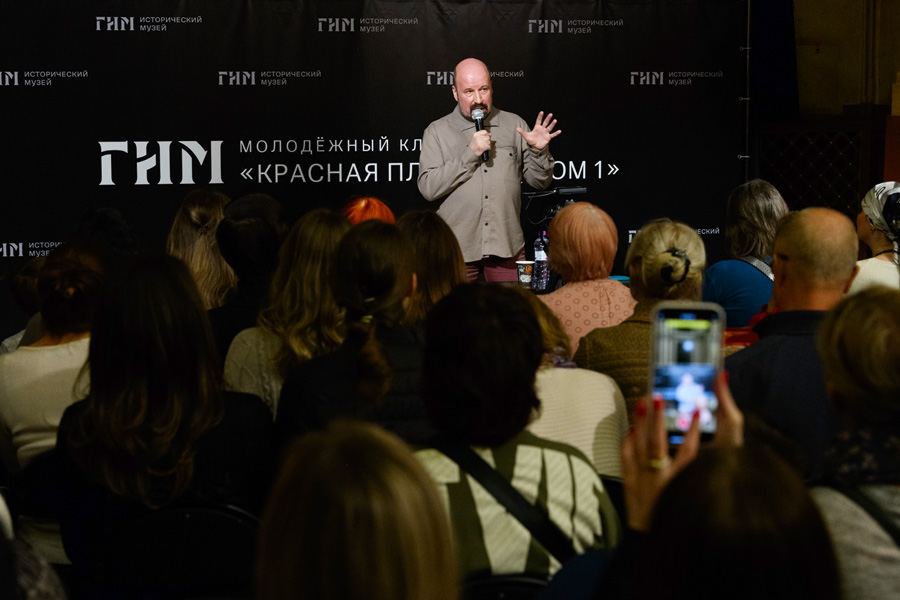Boris Yakemenko, Ph.D., teacher at RUDN University, presented the book at the State Historical Museum

In the book “History of Russia from Ancient Times to the Present Day,” Boris Yakemenko comprehensively examines the life of the Russian state. The story about great rulers, religion, culture and life, significant reforms, including their economic and social consequences, makes it possible to reflect on the cause and outcome of the main events in the history of the country. A separate chapter is devoted to the events of 2022 and 2023.
This book turns to history; an appeal to her experience, the life experience of those who walked this earth before us, an attempt to understand in some ways what is happening, in some ways the past, and in some ways the future. The state and the individual are two subjects of history, the relationship between which determines the course and direction of the historical process.
“The book is a comprehensive picture of Russian history. One of the most important events in the modern history of Russia is the Northern Military District. The chapter about it is preceded by a large overview of the relationship between Russia and Ukraine over the past 30 years, so that the logic of events is clear. I don't evaluate events - I evaluate the logic that leads to them. This means that we evaluate the causes, since an event is only a consequence”, - Boris Yakemenko.
This is the second edition of Boris Yakemenko’s book, which, according to the Moscow bookstore, has already become a bestseller.
Photo – State Historical Museum press service
Vadim Pokrovsky, Doctor of Medical Sciences, Head of the Department of Biochemistry named after Academician T.T. Berezov of the RUDN Medical Institute was awarded the Moscow Government Prize in the “Medical Sciences” category. The award was given for a series of works devoted to the study of the mechanisms of action and antitumor activity of enzymes that destroy amino acids.
The project and publication “USSR-100: reconstruction of history and anniversary”, its authors became laureates of the National Award “Best Books, Publishing Houses, Projects”. One of the authors is Elena Kotelenets, Doctor of Historical Sciences, Professor of the Department of History of Russia at RUDN University.
Landfills are the third largest source of anthropogenic methane in the world. They account for ~11% of estimated global emissions. Methane is 80 times more powerful than carbon dioxide and is the second largest driver of man-made climate change. Scientists from around the world met at Zhejiang University's Hangzhou campus to determine the best available technologies for recovering energy and materials from non-recyclable residual waste.
Vadim Pokrovsky, Doctor of Medical Sciences, Head of the Department of Biochemistry named after Academician T.T. Berezov of the RUDN Medical Institute was awarded the Moscow Government Prize in the “Medical Sciences” category. The award was given for a series of works devoted to the study of the mechanisms of action and antitumor activity of enzymes that destroy amino acids.
The project and publication “USSR-100: reconstruction of history and anniversary”, its authors became laureates of the National Award “Best Books, Publishing Houses, Projects”. One of the authors is Elena Kotelenets, Doctor of Historical Sciences, Professor of the Department of History of Russia at RUDN University.
Landfills are the third largest source of anthropogenic methane in the world. They account for ~11% of estimated global emissions. Methane is 80 times more powerful than carbon dioxide and is the second largest driver of man-made climate change. Scientists from around the world met at Zhejiang University's Hangzhou campus to determine the best available technologies for recovering energy and materials from non-recyclable residual waste.